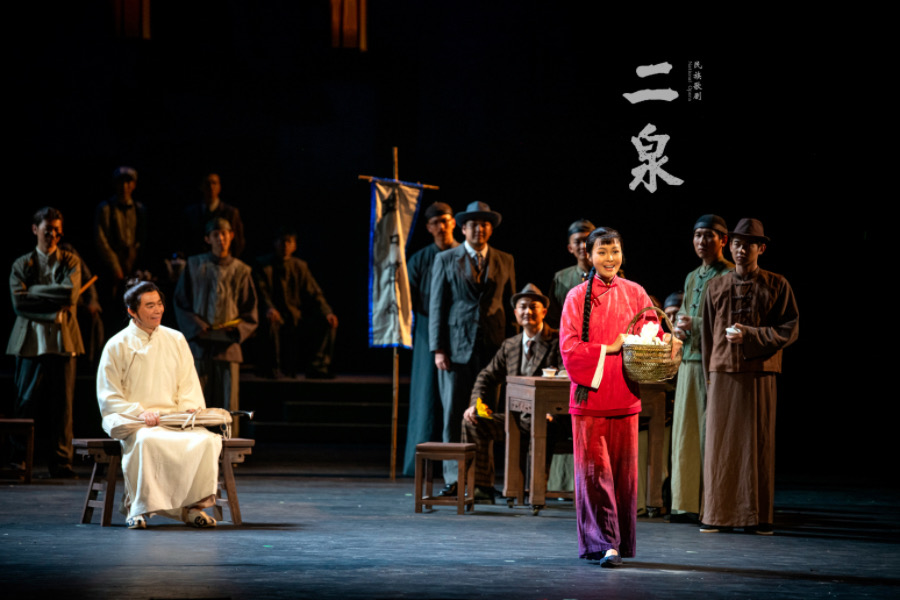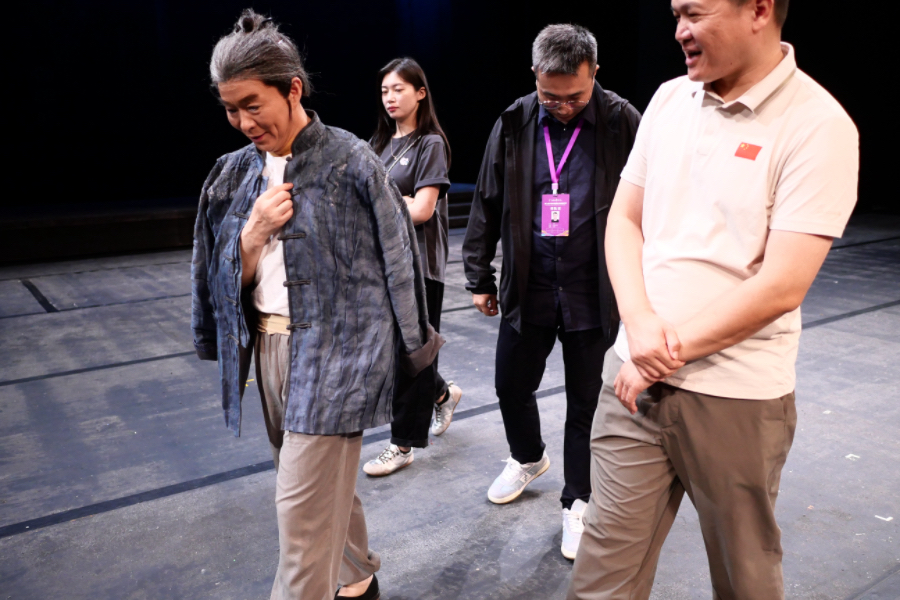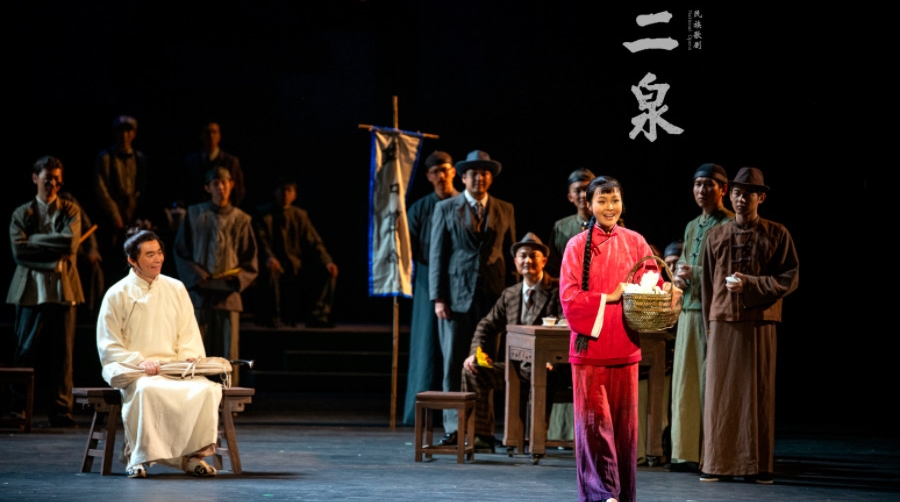
Stills from folk opera "Erquan." [Photo provided to China.org.cn]
The folk opera "Erquan," a collaboration between the Tianjin Conservatory of Music and Xinjiang Normal University, premiered July 21 at the Urumqi Grand Theatre as a centerpiece of the seventh China Xinjiang International Ethnic Dance Festival in northwest China's Xinjiang Uygur Autonomous Region.
The production, directed by Wang Hongwei, president of Tianjin Conservatory of Music, chronicles the life of Chinese blind folk musician Abing (Hua Yanjun), whose compositions are considered masterpieces of Chinese folk music.
Performing in his homeland stirred profound emotion for Wang, who traces his roots to Xinjiang. "Homecoming carries unique weight," he said. "The people here hold a special affection for me. When I stepped onstage, their love, support and expectations moved me deeply."

Wang Hongwei (left), president of the Tianjin Conservatory of Music, practices on stage before a performance at the Urumqi Grand Theatre, northwest China's Xinjiang Uygur Autonomous Region, July 21, 2025. [Photo by Yang Chuanli/China.org.cn]
Wang said he hoped to create an opera reflecting the unity and friendship of all ethnic groups in Xinjiang. "Xinjiang is where my artistic dream started. I hope to tell touching stories of this land through music," he said.
"Erquan" weaves together realistic and abstract narrative structures. Western symphonies blend with traditional Chinese instruments such as the erhu and pipa, while incorporating regional opera styles including Xiju Opera, Yue Opera, Jiangnan folk songs and Suzhou Pingtan.

Audience members wait for "Erquan" to begin at Urumqi Grand Theatre, northwest China's Xinjiang Uygur Autonomous Region, July 22, 2025. [Photo by Yang Chuanli/China.org.cn]
The opera depicts Abing through solos, ensembles, duets and choral arrangements as a resolute and talented musician who struggled against hardship. Monday's show resonated with the audience through its blend of music and narrative.
Yang Guan, a Tianjin Conservatory of Music sophomore, portrayed Abing's birth mother Wu — a role marked by suffering. "Wu's life was full of hardships, while I live in relative comfort. It was hard for me to empathize with her at first," Yang Guan said. "Guided by directors and mentors, I explored emotional nuances and contextual details to have a good grasp of her inner world."
Teachers and students from Xinjiang Normal University participated in the performance. Students from the university's School of Music formed the chorus and handled dance and opera performances. Student Li Jiale said it was his first time participating in such a large-scale opera performance. "It has not only greatly improved my professional skills, but also made me deeply feel the charm of national culture," he said.
The Tianjin Conservatory of Music has strengthened cooperation with universities, including Xinjiang University, Shihezi University, Tarim University and Kashgar University, in recent years.
The university collaborations extend beyond the opera stage. "Local academic participation not only nurtures Xinjiang's artistic talent but exemplifies living cultural exchange — where interaction breeds unity," Wang said.


 Share:
Share: 




 京公網(wǎng)安備 11010802027341號(hào)
京公網(wǎng)安備 11010802027341號(hào)